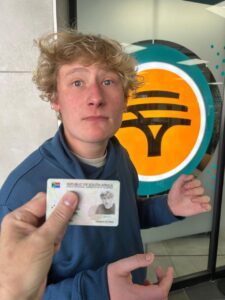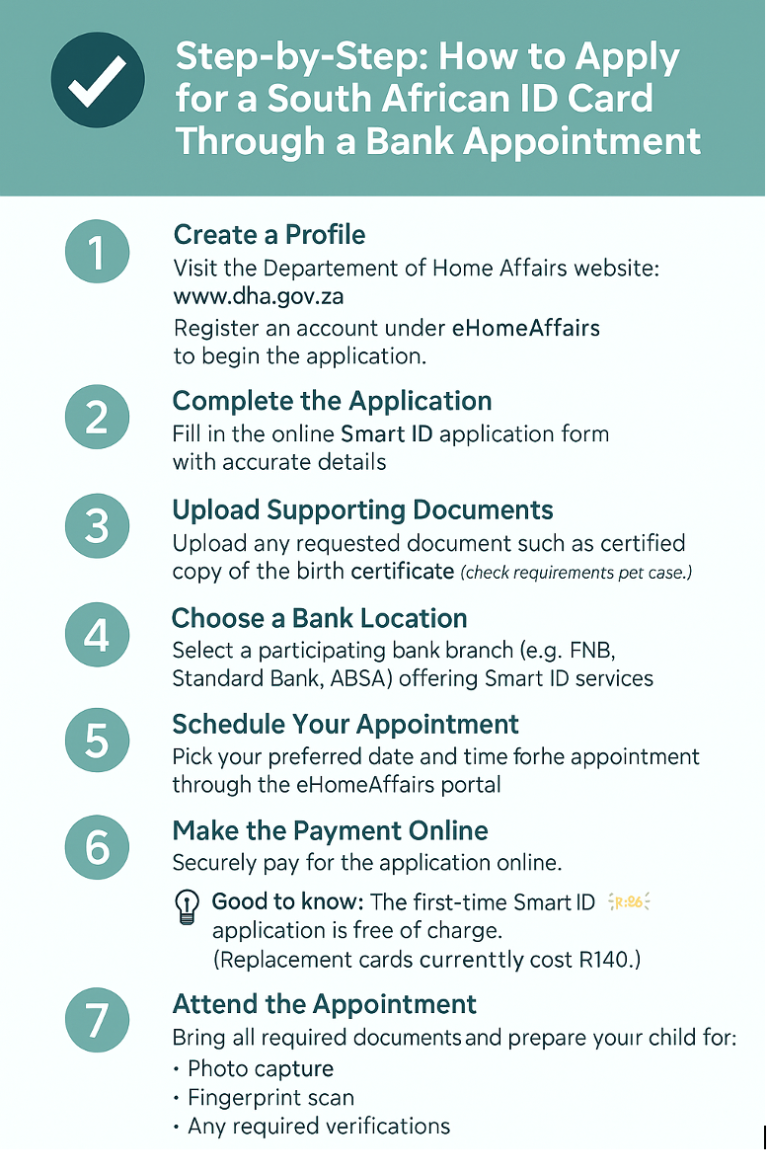
Getting My Nonspeaking Son His ID Card: A Surprisingly Smooth Experience.
Written by: Stefanie Louw, mom to Jaco and a certified S2C practitioner.
When my son turned 18, one of the first things on my to-do list was helping him get his South African ID card. For most families, this is a simple errand, but when you’re parenting a nonspeaking autistic young adult, even everyday tasks require a bit of extra planning and intention.
Exploring Our Options
In South Africa, you can either go to the Department of Home Affairs or schedule an appointment at an authorized bank. Knowing how overwhelming government offices can be, loud, crowded, and unpredictable, we opted for the second option and made an appointment at FNB at The Grove Mall in Pretoria East. It turned out to be the best decision we could’ve made.
To begin the process, you first need to create a profile on the Department of Home Affairs eHomeAffairs website. Once registered, you can fill in the online application, upload supporting documents, and schedule a date and location for your appointment, either at a Home Affairs office or a participating bank branch like FNB, Standard Bank, Nedbank, Discovery Bank or ABSA. We did ours through FNB.
Prepping for the Day
We used spelling to talk through what to expect: from checking in to taking a photo and doing fingerprints. My son has been Spelling to Communicate since 2018, and we’ve learned how much he thrives with clear, step-by-step preparation. Although we didn’t rehearse the process, it might be helpful to practice sitting still for a photo, taking fingerprints, and if your child can write, practice a signature. In our case, he was accommodated by not being required to sign. This can vary, so it’s worth asking in advance or being ready just in case.
A Warm Welcome
From the moment we walked into FNB, we were met with warmth and professionalism. The staff were kind and patient, and never once made us feel out of place. I explained that my son doesn’t speak but communicates by spelling. There were no strange looks or dismissive comments, just genuine interest and support. We received the usual stares from the public, but by now, I am a veteran at holding my head high and focusing on the task at hand- supporting my son.
Gentle Guidance Through Each Step
Each part of the process, photo, fingerprints, and forms, was handled with care. The staff gave us time. They spoke to my son, not over him or around him. When something needed explaining, they addressed him directly and allowed me to support him as needed. It was clear they had experience dealing with a wide range of clients and were committed to being inclusive.
A Moment of Pride
When the photo was taken and the fingerprints scanned, I felt an unexpected wave of emotion. This wasn’t just paperwork; it was a milestone. A moment when my son, a young man who communicates differently, was seen, respected, and recognised by the system.
What Made It Work
- Booking ahead helped us avoid queues and long waits.
- The calm, professional atmosphere at FNB was ideal for a young person with sensory sensitivities.
- The staff’s respectful attitude made all the difference; they were prepared to listen, learn, and adjust where needed.
- I was even offered the option to collect the ID card on my son’s behalf, a thoughtful accommodation that could make things easier for many families. As a single mom without backup, I couldn’t take up that offer, but it was reassuring to know that such flexibility exists.
Why I’m Sharing This
So often, we hear stories about how hard it is to navigate systems with a nonspeaking child or adult. And yes, those challenges are real. But it’s just as important to share the good stories, the ones where things go right, where people are kind, and where systems do, in fact, work.
A Note to Other Families
If you’re approaching this milestone with your own nonspeaking teen or young adult, take heart. With a bit of preparation and the right setting, it can go well. Choose your location and date wisely. We went on the 1st of the month, which was a busier time. Advocate calmly, and trust your child’s ability to navigate the process, especially when supported by understanding people.
Looking Ahead
We left FNB that day feeling hopeful, validated, and quietly proud. That small plastic card represents something bigger: belonging, identity, and the right to be seen, not just by a camera lens, but by society itself.
Thoughts from my son about his experience
THE EXPERIENCE WAS A PLEASANT ONE
IT WAS GREAT TO ACHIEVE THIS MILESTONE AND HAVE THE SUPPORT OF MOM
Any advice to families wanting to navigate the process?
GIVE LOTS OF SUPPORT TO HELP WITH THE PHOTO TAKING AND FINGERPRINTS
